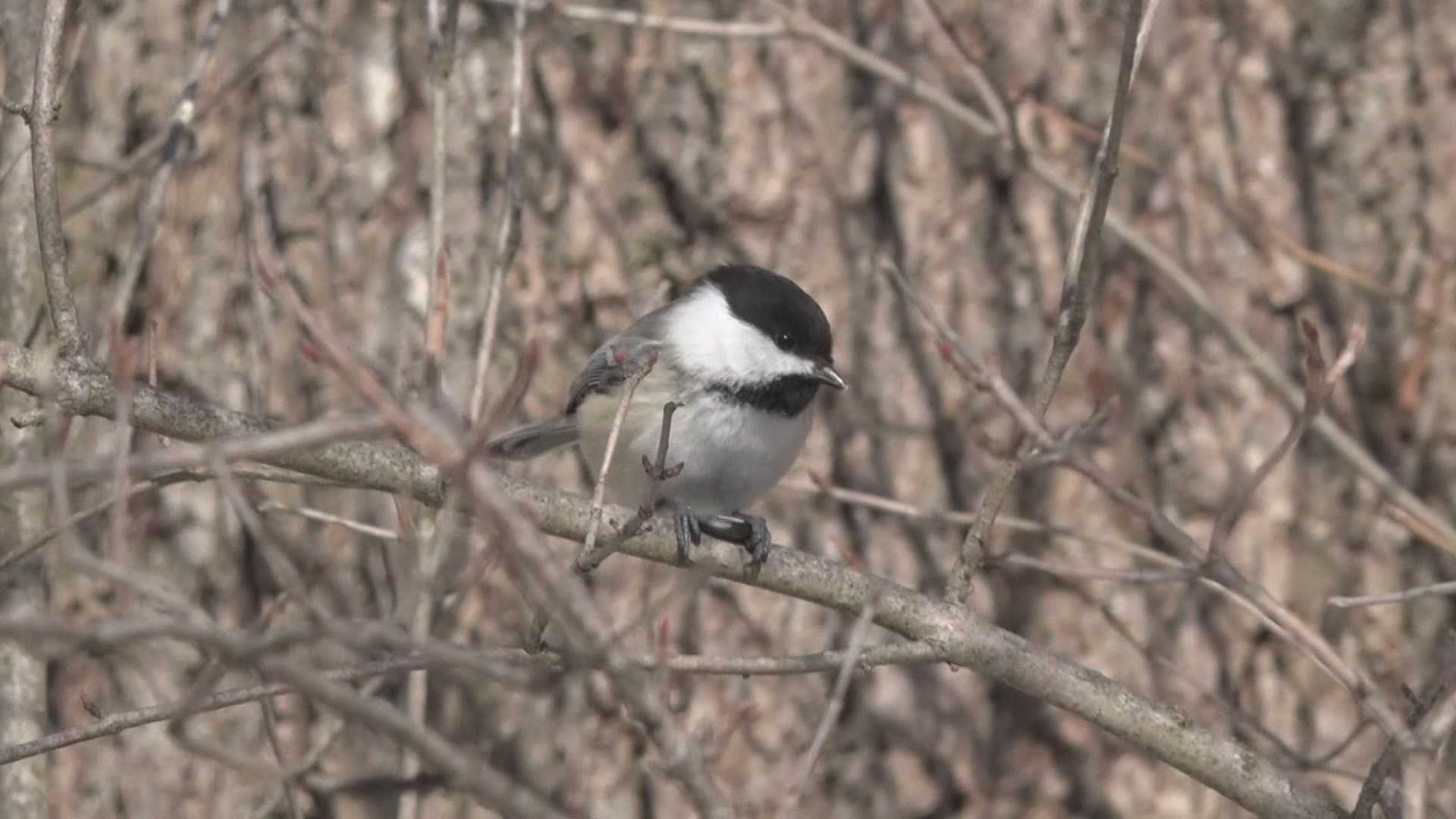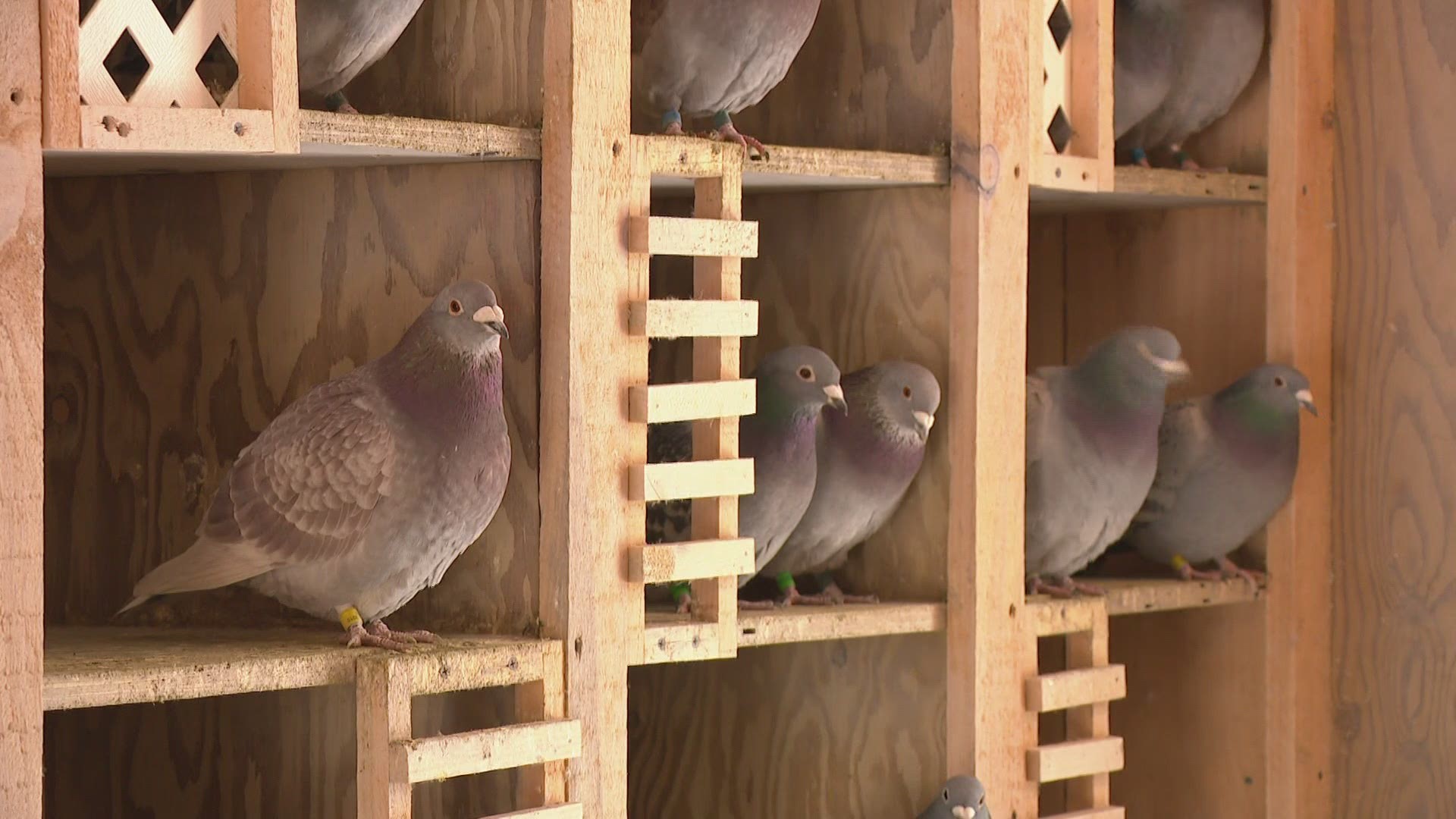GRAND RAPIDS, Michigan — During the COVID-19 pandemic, many people have found "quarantine hobbies," and birding is one hobby people are trying out for the first time. The journal Biological Conservation recently released a study showing a rise in the number of people posting data to a birding website called eBird.
As luck would have it, wildlife education specialist Sarah Chertos from the Blandford Nature Center says now is a particularly exciting time to be a birder in West Michigan.
"We have irruptive migration happening, which is food dependent and it’s not predictable, and a lot of times when these irruptive migrants come down, they don’t return to the same spots. So people are having this exciting time for something new and unique," Chertos said.
"Irrupt" is a verb meaning to enter forcibly or suddenly, and that's exactly what many species are doing. They come from Canada and the Upper Peninsula and they're here searching for food.
"Their normal breeding range doesn’t have as many conifers producing really good seed-bearing cones, and so they’re coming down here to check out our conifers. So that’s going to be a spot where people are going to more commonly find them," Chertos said.
Species in West Michigan right now that aren't common here include the pine siskin, common redpoll, evening grosbeak, and red-breasted nuthatch.
The irruption of birds from up north comes as Michigan's typical migratory birds begin to return to our state from their winter homes in the south. Red-winged blackbirds have already made their way back to the Blandford Nature Center after wintering in the southern United States along with Mexico and Central America.
"We’re going to hear lots of singing. We’re going to see lots of foraging for food and nesting materials. You’re going to see birds at your feeder. You’re going to see birds in your favorite places to hike," Chertos said.
Tips for new birders
The most important thing to remember while birding is to give birds their space and watching from a safe distance.
"Whether we are watching them in migration or watching them in these nesting, brooding habits, we don’t want to interrupt any of that," Chertos said.
Patience goes a long way, especially when you're looking for uncommon species of birds.
"A lot of people go out with expectations. Go out with no expectations. Just go out and be ready to take on whatever you experience. Be patient. Maybe go a little slower than you’re used to," Chertos said.
"I’m the type of person when I’m hiking, I’m moving and moving and moving, which means I’m not paying attention to the things going on around me."
You may also come across injured birds, especially since many of the irruptive species visiting Michigan are in a new environment with predators they're not used to.
"You're going to want to call your local wildlife rehabber for proper information of what to do next and if you can, give those rehabbers a good old donation because those guys are going to be encountering not only our normal native residents that are becoming injured or abandoned as the seasons are changing, but those irruptive migrants too," Chertos said.
The Blandford Nature Center welcomes its visitors to go birding on its trails and they have plans to offer more resources to people who are new to the hobby.
"We will eventually have some rentable backpacks that will have field guides and binoculars inside of them and devices where you can play bird calls from them," Chertos said.
Blandford recommends using the Merlin Bird ID app or the Audubon app to help identify new birds.
Attracting birds to your feeders
You can also enjoy birding without leaving your home by keeping your feeders stocked with the food your neighborhood birds love.
"We like to encourage feeders that have a variety of seed types so that you can get a variety of birds. We know that a lot of different woodpeckers as well as chickadees love those suet cakes so those would be a good one to put out," Chertos said.
"Suet is going to be a nice source of fat for them, especially as they’re still dealing with these colder temperatures. Maybe they’re coming back from migration and they’re exhausted, they’re looking for a food source."
You may also wanted to buy a feeder that is hard for squirrels to get into because Chertos says they can deter birds from visiting your feeder. So can birds of prey.
"Keep an eye out for Cooper's Hawks and sharp-shinned hawks keeping an eye on your bird feeder. We recommend that you don’t put a feeder really close to a bush or really close to another tree, because that allows a predator to have a perching and watching spot directly by the feeders."
It's also a good idea to keep your feeder a good distance away from your home to prevent window strikes.
►Make it easy to keep up to date with more stories like this. Download the 13 ON YOUR SIDE app now.
Have a news tip? Email news@13onyourside.com, visit our Facebook page or Twitter. Subscribe to our YouTube channel.


